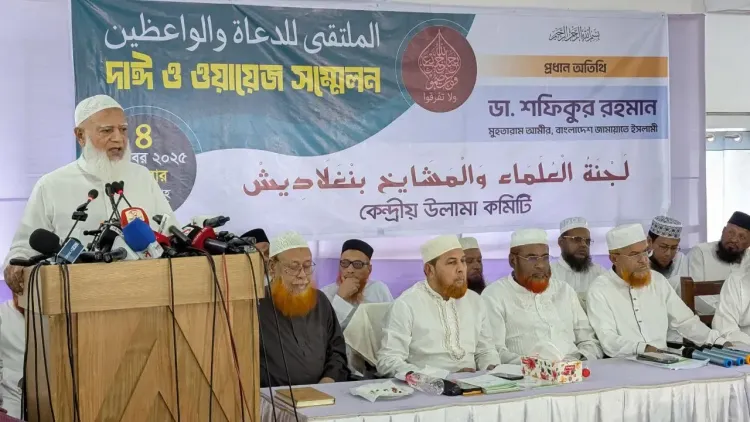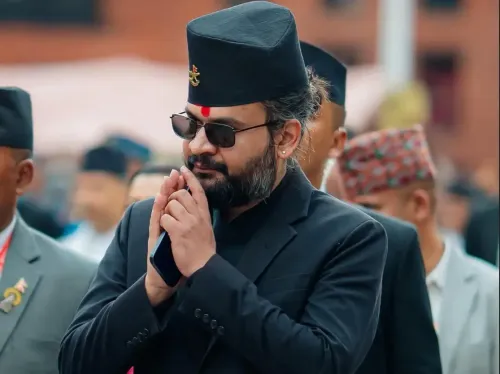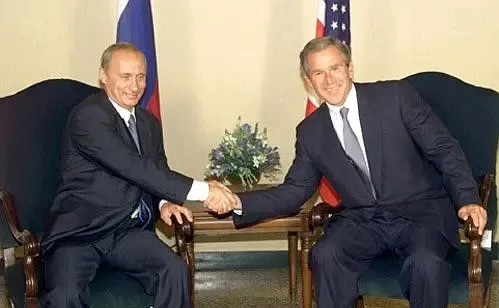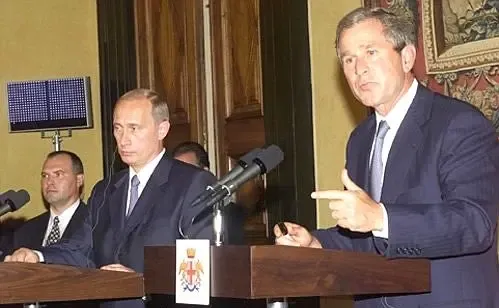Is Jamaat's Apology for 1971 Genocide Just an Election Stunt?

Synopsis
Key Takeaways
- Jamaat-e-Islami's apology lacks specificity.
- Analysts question the sincerity of the statement.
- The party is attempting to present a progressive image.
- Electoral pressures influence the timing of the apology.
- Historical accountability remains a critical issue.
Dhaka, Nov 4 (NationPress) The chief of Bangladesh Jamaat-e-Islami, Shafiqur Rahman, recently issued an unconditional apology for the party's historical transgressions—specifically its collaboration with Pakistan during the genocide in the 1971 Liberation War. This statement has been deemed a 'blanket apology' due to its lack of specificity regarding the crimes and absence of accountability, according to a report released on Tuesday.
Rahman reportedly stated to the media in New York last month, 'From 1947 to today (October 22), we unconditionally seek forgiveness from anyone who has suffered because of us.'
However, analysts assert that the apology is insufficiently detailed, as Rahman did not explicitly identify the actions for which he was expressing regret.
As journalist and researcher Siam Sarower Jamil, who was born in Dhaka, noted in The Diplomat, 'The Jamaat has much to apologize for. It played a controversial role in the 1971 Liberation War. Not only did it collaborate with Pakistan in the war, but it also participated in the genocide. The shadow of that history still weighs heavily on the party’s shoulders.'
The article highlights that with elections approaching in February 2026, Jamaat has intensified efforts to attract voters.
'Alongside forming alliances with other Islamic groups, it is aiming to present a more progressive image. Initiatives include establishing a committee focused on creating a Hindu wing to engage minorities and showing interest in women's issues. Recently, they launched a campaign to raise awareness about breast cancer,' the report elaborates.
Jamil also mentions that the radical organization has suggested a redesign of its logo.
'The proposed new emblem features a rising sun, a pen, and a balance scale on an open book against a green backdrop. Previously, the logo was overtly Islamic, featuring the word 'Allah' in calligraphy and the Arabic term 'Aakimuddin', meaning 'establish Islam', alongside the party's election symbol, a scale,' he explained in The Diplomat.
'Regardless of how fresh the appearance, the Jamaat’s core remains unchanged as long as it cannot absolve itself of the dreadful acts committed during the Liberation War. This is why Rahman sought to distance his party from its history by offering an unconditional apology.'
The report stresses that specific crimes of such magnitude necessitate a clear, unequivocal, and heartfelt apology, rather than vague pleas for forgiveness.
'What is the purpose of this apology performance? Is it an acknowledgment of responsibility for the Liberation War, or merely a strategy to manage public opinion regarding the party’s past? Is this a ploy to secure votes in the upcoming election?' Jamil questions, expressing skepticism about the Jamaat-e-Islami party's sincerity—'Are they genuinely remorseful, or merely manipulating language under the pressure of time?'










